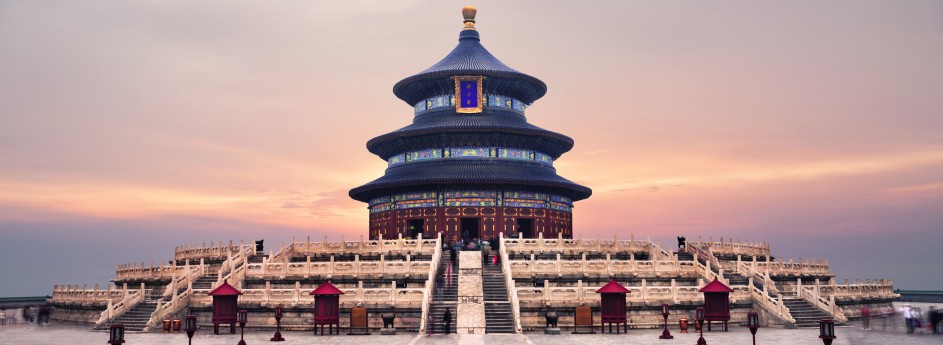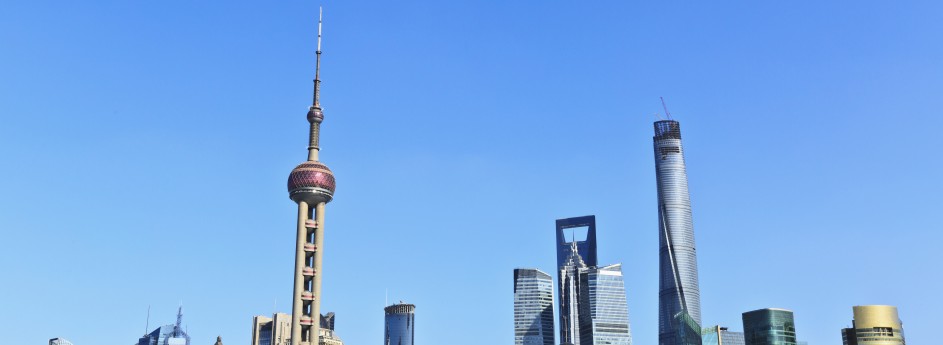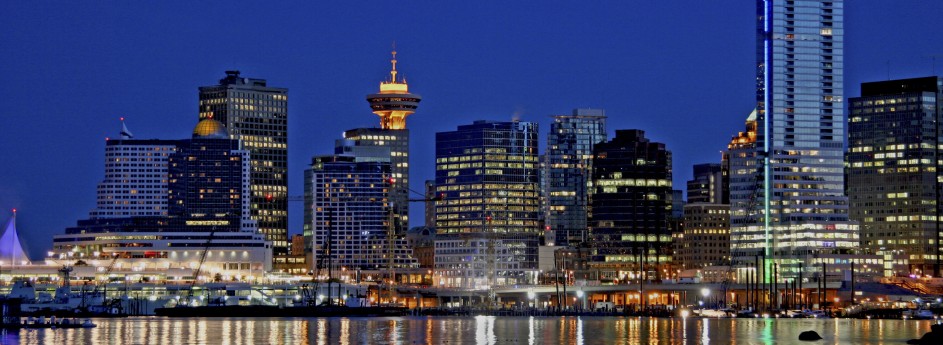China-US Deal on Repatriation of Ill-Gotten Gains Imminent
Following soon-to-be agreements with the Canadians, Aussies, and the French, hope the US Congress won’t tie this deal up for petty political reasons and so-called concerns about China’s judicial process. But, US politicians will think of something to delay an agreement.
———-
China is looking at signing an agreement with the United States to target assets illegally taken out of China by corrupt officials, a newspaper said on Monday, as the government tightens the screws in its anti-graft battle.
China Daily said the central People’s Bank of China was talking to the U.S. Treasury Department’s Financial Crimes Enforcement Network about signing an agreement targeting ill-gotten assets held in the United States.
China is set to finalize a similar deal with Canada, Chinese state media reported this month.
The central bank was also looking at a deal with Australia, the China Daily said, citing Zhang Xiaoming, deputy head of the Finance Ministry’s legal assistance and foreign affairs department.
“After the agreements are made, China will share intelligence with the U.S. and Australia, which will also offer information to their enforcement agencies to conduct further investigations,” Zhang told the English-language paper.
“Once law enforcement officers in the U.S. and Australia identify illegal funds, they will immediately initiate judicial procedures to freeze and confiscate those criminal proceeds in their countries.”
The United States, Canada and Australia are popular locations for corrupt officials to transfer their assets, the paper added.
But legal problems have prevented China from getting these assets back, Zhang said.
“Although the U.S. Federal Bureau of Investigation or Australian police have traced the assets and collected enough evidence to identify them as ill-gotten gains, they are unable to take immediate measures to freeze and confiscate them due to the lack of asset restraining orders from the Chinese courts.”
China this month asked the United States to help it track down more than 100 people suspected of corruption. At least 428 Chinese suspects had been captured abroad by early December under the “Fox Hunt” campaign, the China Daily said.
– Reuters
Xi’s Anti-Corruption Drive Hurting in the Trenches
This NPR report rings so true.
http://www.npr.org/blogs/parallels/2014/12/24/372903025/chinas-fierce-anti-corruption-crackdown-an-insiders-view
This official Wang interviewed in the report is a real cynical SOB with no loyalties or ideals so long as the gravy train keeps on coming. His example is not a-typical at all. Corruption in China can be deemed “collective or institutional” – the higher-ups accept large bribes, embezzle, and otherwise accumulate massive wealth while in addition to petty graft of their own, some of the largesse trickles down to the lower ranks in various form of perks – end-of-the-year bonuses of course but also food and other hampers/coupons, gift cards, club memberships, banquets, organized vacations, you name it.
The gifts and bonuses received by the underlings and lower rung staff can’t be considered corruption per se since they come out of company profits/budgets. But, because they often significantly augment incomes, the vast majority of officials take a blind eye to the goings-on up top. That’s why it is so rare for whistleblowers to sound alarm bells in China – because everybody gets something. Officials often comment on whether a company/organization “generates much oil and water (benefits)”.
Xi’s anti-corruption campaign is hurting where it counts – not only squeezing and nabbing the direct graft-takers high and low but hitting those in the trenches who have benefitted from the old system. It’s creating a “new normal” in the behavior of officialdom, that they cannot expect the gravy train to run forever. That’s why it’s called “catching the tigers and swatting the flies” and “killing the chicken to show the monkeys”.
Xi Trumps Obama in Popularity Survey
A recent poll of citizens from 30 countries on their views of 10 influential national leaders conducted by leading Japanese research firm GMO and summarized by a fellow of the Ash Center for Democratic Governance and Innovation at Harvard University’s Kennedy School caught some media attention, particularly in China.
The reason? Perceptions of China’s President Xi Jinping trumped that of US President Barak Obama by a wide margin and international assessments of China have improved markedly since he’s been in power.
Harvard’s Tony Saich summarized the survey and detected two general trends; first, geopolitics greatly influenced responses; and second, the nature of the political system impacted on citizens’ opinions of their national leader. The ten national leaders are Obama, Putin, Cameron, Xi, Merkel, Abe, Hollande, Modi (India), Zuma (South Africa) and Rousseff (Brazil). This review focuses on Xi, especially compared to Obama and Putin.
On a scale of 1-10, President Xi got a rating of 9 and President Putin a score of 8.7 from their respective citizens whereas Obama received just 6.2 with Hollande taking up the rear at 4.8. (The high score of Modi (8.6) was discounted somewhat because of his recent election that allowed him to enjoy a political honeymoon). Examined across countries, the poll found Xi to be highly thought of in Africa, Eastern Europe, and Asia, with key exceptions of Japan and Vietnam that are embroiled in different territorial disputes with China.
Obama faired well in many countries with the exclusion understandably of Russia (4.9) and Pakistan (5.8) but surprisingly Japan too (5.8). Putin divided global opinion with 1/3 of the 30 countries giving him a rating of 6 while, at the same time, he’s highly popular in China (7.9) and Vietnam (8). But, on average, Xi scored highest (7.5), Putin lowest (6) and Obama placed 6th (6.6).
Rated in terms of citizens’ confidence in their leaders’ handling of domestic and international affairs, Xi topped the ranking in both categories with 94.8% and 93.8% respectively. Domestically, Xi’s battle against corruption and his grassroots style and image have won him much support from many segments of society. Internationally, his frequent state visits abroad and handling of great power relations has garnered praise from both experts and the man on the street.
In this respect, President Obama enjoys a 51.7% confidence level from his compatriots in domestic affairs and 49.1% for international affairs. As for Putin, despite Crimea, Western sanctions, plummeting oil prices, the fall of the ruble, and an impending financial crisis, he still enjoys high approval, 86.2% and 86% respectively. This shouldn’t be surprising as Russians perceive him to be a stalwart patriot protecting the interests of Mother Russia against the unjust encroachments of US-led Western forces.
More significant, however, is what other people think of the 10 leaders. Here too, confidence in Xi’s handling of domestic and foreign affairs is very high. On the domestic front, again with notable exception of Japan, opinions across Asia are very positive, and even higher in Africa but significantly lower in Europe. Americans too are gung-ho with 52.6% approving of Xi’s domestic governance. President Obama gets a lot of support from Africa, Western and Northern Europe, and china (59.1%) for his domestic policies but only 12.6% from Russians. Once more, Putin divides opinion with high ratings from a few countries such as China and Vietnam but very low approvals from the US and countries that border Russia like Finland.
As for international affairs, notwithstanding low scores in Japan and certain Western European countries, notably Spain, Xi still scored high across the board including in the US where 68.5% approve of the way he’s handling China-US relations. Thus, his efforts at building better ties may be paying off. Needless to say, most international respondents are unhappy with the way Putin handles foreign affairs with only 6 countries giving him approval ratings over 70%, China and Vietnam being the highest among them.
Overall, President Xi ranked second in both categories (78.5% domestic, 76.5% international) behind Angela Merkel (79.7% and 77.2% respectively) whereas Obama landed 5th in both (64.5% and 64.2% respectively) and Putin 7th in domestic (60.2%) and 8th in international (58.9%). Interestingly, Japan’s Abe was judged the worst in both categories, 42.5% for domestic and 40.3% for international.
In addition, the survey found foreigners’ trust in Xi Jinping’s domestic and international policies tended to rise (by 10%) for those countries he visited as well as awareness of Xi himself (10% rise). Confidence in Xi’s policies was not quite as high in countries that he has not visited but nonetheless still fairly high. Since assuming China’s presidency, his visits have spanned all continents with most recent tours of Central and South Asia and Oceania.
Finally, in terms of people’s perceptions of development strategies adopted by various countries, China’s spectacular growth over the past three decades has made deep impressions across the developing world in Asia, Africa and Latin America. Americans, however, while cognizant of China’s major strides (with many wrongly believing China is now to the premier economy), only a small minority (8.6%) approve of China’s hybrid economy due to their pro-market and anti-state proclivities.
Thus, the general take away from the survey is that compatriot and foreign perceptions of President Xi’s domestic and international policies are highly positive, higher than those for presidents Obama and Putin.



